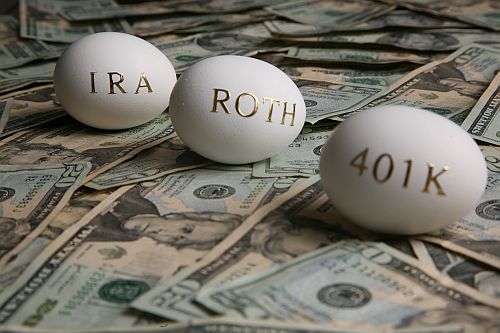Why Self-Directed IRAs Must Be Handled With Professional Care
 With the wealth of information available about Self-Directed IRAs on the internet and elsewhere, it is tempting to believe that such information provides sufficient guidance for the proper handling of your IRAs. However, as many have found out at great cost, handling IRAs without the assistance of a professional who is knowledgeable about how IRAs work is risky behavior. The following are just two of the many examples that are available:
With the wealth of information available about Self-Directed IRAs on the internet and elsewhere, it is tempting to believe that such information provides sufficient guidance for the proper handling of your IRAs. However, as many have found out at great cost, handling IRAs without the assistance of a professional who is knowledgeable about how IRAs work is risky behavior. The following are just two of the many examples that are available:
10 Percent Rule Misapplied: The Case: Peggy Ann Sears v. Commissioner, T.C. Memo. 2010-146
Distributions from retirement accounts are subject to a 10 percent additional tax (early distribution penalty), unless an exception applies. One of the exceptions applies to amounts withdrawn from an Inherited IRA. This rule may seem simple. However, it gets complicated for spouse beneficiaries because a Self-Directed IRA that is inherited by a surviving spouse is not necessarily an inherited IRA. Here’s why!
When a surviving spouse inherits an IRA, he (or she) has the option of treating the amount as her ‘own’ IRA by moving the amounts to her own non-inherited IRA, or she may keep the amount in an inherited IRA. If the amount is kept in an inherited IRA, distributions from that inherited IRA are ‘death distributions’, which are not subject to the 10 percent early distribution penalty, regardless of the age at which the distribution is made. On the other hand, if the amount is moved to her ‘own’ IRA, the ‘death distribution’ exception no longer applies. In the case of Peggy Ann Sears v. Commissioner, T.C. Memo. 2010-146, Peggy found this out the hard way when she moved her deceased husband’s IRA into her own IRA and subsequently made withdrawals before she reached age 59 ½. Peggy did not pay the 10 percent early distribution penalty on the amount when she filed her tax return, because she thought the amount was a ‘death distribution’. The IRS amended her tax return to show that she owed the penalty, which amounted to $6,093.70.
Rule for Tax Treatment of IRA Earnings Misapplied: Robert L. Bernard and Diolinda B. Abilheira vs U.S. Tax Court T.C. Memo. 2012-221
Amounts withdrawn from an IRA are treated as ordinary income and any pretax amount is taxed at the owner’s ordinary income tax rate. However, the taxpayers in the case of Robert L. Bernard and Diolinda B. Abilheira vs. U.S. Tax Court felt differently and applied the (lower) capital gains treatment to amounts that they withdrew from various IRAs. They claimed that because capital gains within their IRAs increased the value of those accounts, they are entitled to report the distributions received as capital gains. They also contended that capital gains within the accounts “increased the cost basis” of shares. However, the IRS disagreed and amended their tax return, which resulting in them owing a penalty of $8,179.
Let us Guide You
With the availability of seemingly endless sources of information about Self-Directed IRAs, you might be tempted to feel you have enough knowledge to handle your IRA transactions without assistance. But as you know, practical experience is often needed to help ensure proper application of the rules. Please contact us before initiating transactions that could put your retirement savings at risk of unintended taxes and avoidable penalties.


